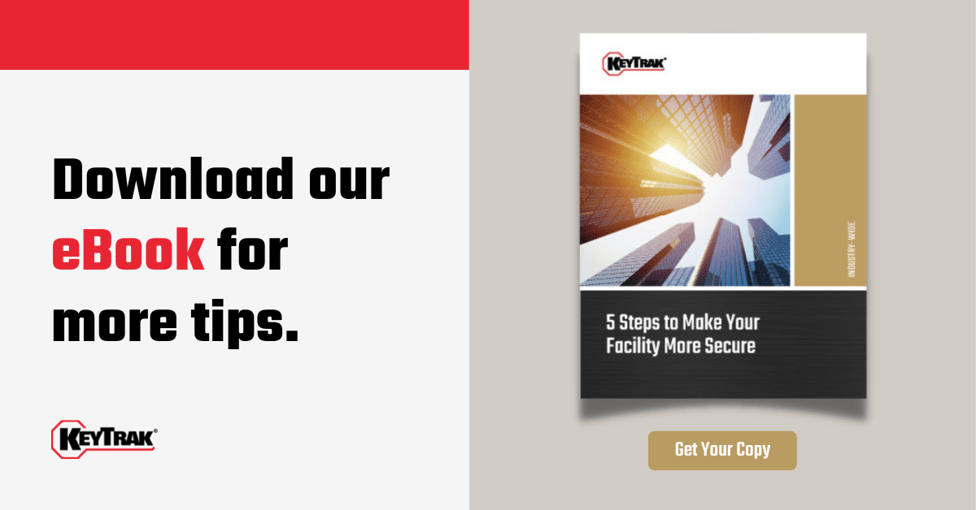When someone stays at your hotel, they want to be able kick back and enjoy their stay without having to worry about their safety. But unfortunately, not all travelers feel protected after they check in. An Inside Edition undercover report reveals that their fears are legitimate. As part of the investigation, a reporter approached two different hotel front desks and asked for a specific room key, claiming he’d misplaced his key. At both hotels, staff broke policy by handing over the key without checking the reporter’s ID.
As you can imagine, the consequences of a room key in the wrong person’s hands can be catastrophic — not only to guests but to the staff, hotel, and brand. What can you do to secure keys and put guests’ minds at ease in your hotel?
1. Create a Culture of Security
To make sure employees follow protocol — such as verifying someone’s ID before handing over a key —it’s important to foster a culture of security. Train employees on your organization’s specific protocol as well as security best practices. In an article for Security Magazine, Hwee-Fong Yong, a hotel safety manager, says sharing security knowledge across departments allows internal and external stakeholders to function as “the extended arm for the security department.”
In addition, implementing checks and balances helps hold employees accountable for following policies. For example, you can secure key cards and any traditional metal keys in an electronic key management system. When a staff member checks out a key, the system will automatically log who’s responsible and prompt them to select a checkout reason. You can also require staff to list a guest’s name when issuing each key.
2. Restrict Contractor/Vendor Access
It goes without saying that it’s important to fully vet any vendors or contractors before hiring them. Staff should always verify a third party’s credentials when they set foot on your property, especially if they’ll be entering guests’ rooms.
When issuing keys or key cards to third parties, ensure they only have access to the areas in which they’ll be working and only during the time frame required to complete the job.
With electronic key control, you can track when each key is checked out, which vendor or contractor it’s been issued to, and when it’s due for return. In addition, you can restrict key access to specific days or times to ensure no one uses keys inappropriately outside their contracted schedule.
3. Use Technology to Speed Up Incident Response
Technology is a valuable tool for responding to potential security incidents on your property. According to Yong, hotel security leaders can use surveillance systems to “extend the reach of their teams and ensure safety at their facilities.” These systems can quickly detect unusual activities at high-risk locations and trigger a response to the location.
To further improve your security response, implement an electronic key control system with a motion-activated camera. When someone approaches the system, the camera automatically starts recording, even if the person doesn’t log in (or attempt to log in). The system can alert management of potential security concerns, such as:
- Attempting to log in with someone else’s password.
- Retrieving more keys than the user requested.
- Returning a key a user didn’t originally check out.
- Failing to return a key before its due date.
- Cutting power to the machine.
- Taking a key outside the user’s access level.
- Leaving a system drawer open past the allotted drawer open time.
When responding to security concerns, time is critical. By responding quickly, you can help prevent the worst from happening.
By combining a well-trained, security-conscious team with technology, you can increase your hotel’s security. When someone checks in to your hotel, put their minds at rest so they can enjoy their stay.


